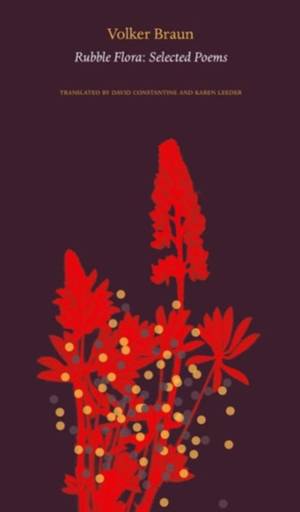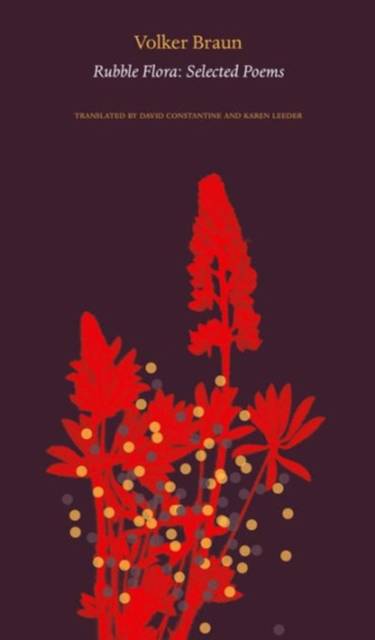
- Afhalen na 1 uur in een winkel met voorraad
- Gratis thuislevering in België vanaf € 30
- Ruim aanbod met 7 miljoen producten
- Afhalen na 1 uur in een winkel met voorraad
- Gratis thuislevering in België vanaf € 30
- Ruim aanbod met 7 miljoen producten
Zoeken
€ 22,45
+ 44 punten
Omschrijving
Born in the former East Germany, Volker Braun is a humane, witty, brave, and disappointed poet. In the East, his poetry upheld the voice of the individual imagination and identified with a utopian possibility that never became reality. This is a selection of poems from the distinguished, half-century-long career of German poet Volker Braun.
Specificaties
Betrokkenen
- Auteur(s):
- Vertaler(s):
- Uitgeverij:
Inhoud
- Aantal bladzijden:
- 144
- Reeks:
Eigenschappen
- Productcode (EAN):
- 9780857422187
- Verschijningsdatum:
- 1/12/2014
- Uitvoering:
- Hardcover
- Afmetingen:
- 128 mm x 224 mm
- Gewicht:
- 314 g

Alleen bij Standaard Boekhandel
+ 44 punten op je klantenkaart van Standaard Boekhandel
Beoordelingen
We publiceren alleen reviews die voldoen aan de voorwaarden voor reviews. Bekijk onze voorwaarden voor reviews.











